
Surrealistic Pillow is the second studio album by the American rock band Jefferson Airplane, released by RCA Victor on February 1, 1967. It is the first album by the band with vocalist Grace Slick and drummer Spencer Dryden. The album peaked at number three on the Billboard 200 and has been certified platinum by the Recording Industry Association of America (RIAA). It is considered to be one of the most influential and quintessential works of the early psychedelic rock era and the 1960s counterculture.
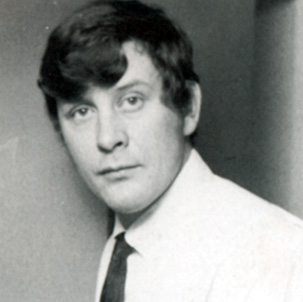
Michael Peter Hayes, known as Mickie Most, was an English record producer behind scores of hit singles for acts such as the Animals, Herman's Hermits, the Nashville Teens, Donovan, Lulu, Suzi Quatro, Hot Chocolate, Arrows, Racey and the Jeff Beck Group, often issued on his own RAK Records label.

The Shadows of Knight were an American rock band from Chicago, Illinois, that played a version of British blues influenced by their native city. When they began recording in 1965, the band's self-description was "the Stones, Animals and the Yardbirds took the Chicago blues and gave it an English interpretation. We've taken the English version of the Blues and re-added a Chicago touch," to which rock critic Richie Unterberger commented: "The Shadows of Knight's self-description was fairly accurate."

The Nashville Teens are a English rock band, formed in Surrey in 1962. They are best known for their 1964 hit single "Tobacco Road", a Top 10 hit in the United Kingdom and Canada, and a Top 20 hit in the United States.

The Beau Brummels were an American rock band. Formed in San Francisco in 1964, the band's original lineup included Sal Valentino, Ron Elliott, Ron Meagher, Declan Mulligan, and John Petersen (drums). They were discovered by local disc jockeys who were looking to sign acts to their new label, Autumn Records, where Sylvester Stewart—later known as Sly Stone—produced the group's early recording sessions. Initially, the band's musical style blended beat music and folk music and typically drew comparisons to the Beatles, while their later work incorporated other music genres such as psychedelic rock and country rock.
"Hang On Sloopy" is a 1964 song written by Wes Farrell and Bert Berns. Rhythm and blues vocal group the Vibrations were the first to record the tune in 1964. Atlantic Records released it as a single, which reached No. 26 on the Billboard Hot 100 chart. The song is associated with Ohio State University and is Ohio's official rock song.
John Dee Loudermilk Jr. was an American singer and songwriter. Although he had his own recording career during the 1950s and 1960s, he was primarily known as a songwriter.
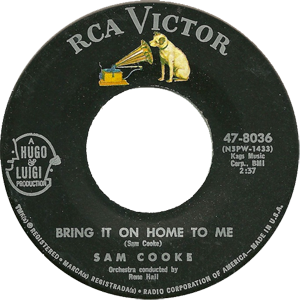
"Bring It On Home to Me" is a song by American soul singer Sam Cooke, released on May 8, 1962, by RCA Victor. Produced by Hugo & Luigi, and arranged and conducted by René Hall, the song was the B-side to "Having a Party". The song peaked at number two on Billboard's Hot R&B Sides chart, and also charted at number 13 on the Billboard Hot 100. The song has become a pop standard, covered by numerous artists of different genres. It is one of The Rock and Roll Hall of Fame's 500 Songs that Shaped Rock and Roll.
"Let's Get Together", also known as "Get Together" and "Everybody Get Together", is a song written in the mid-1960s by the American singer-songwriter Chet Powers, from the psychedelic rock band Quicksilver Messenger Service. A hit version by the Youngbloods, included on their 1967 debut album The Youngbloods, peaked at No. 5 on the Billboard Hot 100 in 1969.

The Worst of Jefferson Airplane is the first compilation album from the rock band Jefferson Airplane, released in November 1970 as RCA Victor LSP-4459. The "Worst" in the title is ironic, as the album features all of Jefferson Airplane's hit singles up to that point. It peaked at #12 on the Billboard 200 in 1971 and has since gone platinum.

"Turn On Your Love Light" is a rhythm and blues song recorded by Bobby Bland in 1961. It was an important R&B and pop chart hit for Bland and has become one of his most identifiable songs. A variety of artists have recorded it, including the Grateful Dead, who made it part of their concert repertoire.
Tobacco Road may refer to:

Psychedelic Lollipop is the debut album by the American rock band the Blues Magoos, and is one of the first records to have the word “psychedelic” on the sleeve. Their single “(We Ain't Got) Nothin' Yet” was their most successful effort, rising into the Top 10 on many national charts. Guitarist Emil “Peppy” Thielhelm was 16 years old at the time of the single’s release. The band recorded five more albums with various lineups, none reaching the success of Psychedelic Lollipop.
"Feelin' Alright?", also known as "Feeling Alright", is a song written by Dave Mason of the English rock band Traffic for their eponymous 1968 album Traffic. It was also released as a single, and failed to chart in both the UK and the US, but it did reach a bubbling under position of #123 on the Billboard Hot 100. Joe Cocker performed a more popular rendition of the song that did chart in the U.S. Both Traffic's and Cocker's versions appear in the 2012 movie Flight. The song had also been featured in the 2000 film Duets, sung by Huey Lewis.
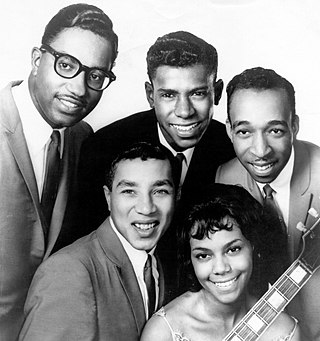
This article includes an overview of the events and trends in popular music in the 1960s.

"Then You Can Tell Me Goodbye" is a song written by John D. Loudermilk. It was first released in 1962 by Don Cherry, as a country song and again as a doo-wop in 1967 by the group The Casinos on its album of the same name, and was a number 6 pop hit that year. The song has since been covered by Eddy Arnold, whose version was a number 1 country hit in 1968, and by Neal McCoy, whose version became a Top 5 country hit in 1996.
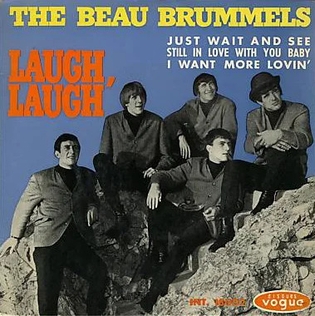
"Laugh, Laugh" is a song by American rock group the Beau Brummels, written by guitarist Ron Elliott and produced by Sylvester Stewart, later known as Sly Stone. Released in December 1964 as the band's debut single, the song reached number 15 on the U.S. Billboard Hot 100 chart the following February. "Laugh, Laugh" was the first hit single to come out of the emerging San Francisco music scene in response to the British Invasion. The song was later included on the band's first full-length album, Introducing the Beau Brummels, released in April 1965.

The discography of English rock band The Psychedelic Furs consists of eight studio albums, 22 singles, six compilation albums, and two live albums.
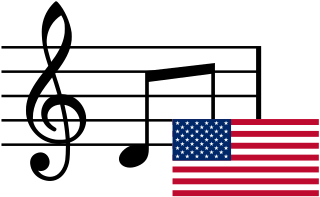
Popular music of the United States in the 1960s became innately tied up into causes, opposing certain ideas, influenced by the sexual revolution, feminism, Black Power and environmentalism. This trend took place in a tumultuous period of massive public, unrest in the United States which consisted of the Cold War, Vietnam War, and Civil Rights Movement.
"We Gonna Move to the Outskirts of Town" is a song originally recorded on September 3, 1936, by Piedmont blues musician Casey Bill Weldon. Weldon performed it as a solo piece, with vocals and acoustic guitar plus piano and double bass accompaniment.














